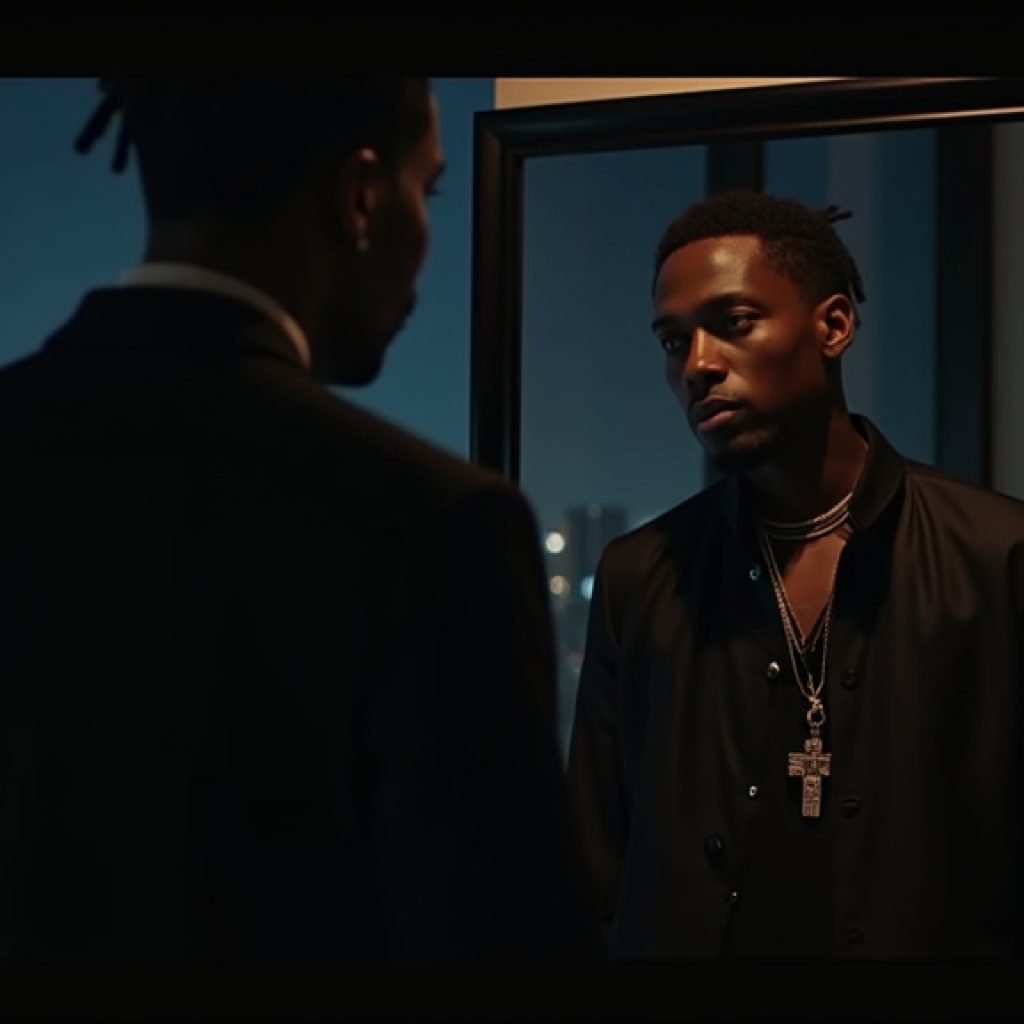Renowned hip-hop veteran Fat Joe has found himself in a complex internal debate, admitting he cannot stop listening to Gunna’s latest album, “The Last Wun,” despite significant reservations about the artist’s perceived loyalty. The Bronx icon shared his conflicted feelings on his podcast, “Joe and Jada,” revealing that while he finds Gunna’s music “fire,” his deeply held principles prevent him from offering full public support.
“The Last Wun,” released recently, has ascended the charts, notably landing at the top of the Billboard Rap Charts and debuting at No. 3 on the all-genre Billboard 200. The album achieved this success by moving 80,000 equivalent album units in its first week, largely driven by strong streaming numbers. This commercial triumph underscores Gunna’s continued influence in the hip-hop landscape, even amidst ongoing controversies surrounding his past legal entanglements.
Fat Joe’s dilemma stems from his interpretation of Gunna’s actions related to the YSL RICO case. Gunna accepted an Alford plea deal, pleading guilty to a conspiracy charge while maintaining his innocence, which led to widespread accusations of “snitching” or “ratting” within the hip-hop community. Despite his legal team’s assertions that he did not cooperate with prosecutors, the perception of betrayal has cast a long shadow over his career and relationships within the industry, including a public fallout with fellow artist Young Thug.
During his “Joe and Jada” podcast appearance, Fat Joe confessed that he stumbled upon “The Last Wun” during a long flight and found himself playing it repeatedly without skipping any tracks. However, this musical enjoyment is fraught with guilt. “I felt guilty listening to it,” Fat Joe admitted, explaining, “Because once I think you told, I’m done with you, no matter how good the music is.” He articulated a personal code rooted in loyalty, stating that “betrayal carries no second chances.” Fat Joe recounted a personal story about a close friend who betrayed him, an incident that left a lasting scar and solidified his belief that loyalty is paramount. This personal history informs his firm stance: “You either live it or you don’t.”
His co-host, Jadakiss, challenged Fat Joe on this apparent contradiction, questioning how he could enjoy an artist’s work while refusing to endorse them publicly. This exchange highlights a central and persistent debate within hip-hop culture: the tension between appreciating artistic output and upholding a personal or cultural code of conduct, especially concerning allegations of disloyalty or cooperation with authorities.
Fat Joe’s perspective reflects a broader conversation about the evolving nature of loyalty in the music industry. While some argue that the era of strict street codes is fading, with fans potentially prioritizing musical quality over artists’ personal conduct, Fat Joe remains firm in his belief that the two are intrinsically linked. He feels that the industry has shifted, where artists once considered “rats” can now achieve significant popularity, a trend he finds disconcerting.
The situation with Gunna and Fat Joe’s commentary serves as a potent example of the complex loyalties and ethical considerations that artists and fans navigate. Gunna’s album continues to dominate charts, demonstrating the undeniable power of his music to connect with listeners. Yet, Fat Joe’s candid admission reveals the deep-seated importance of loyalty within the culture and the personal conflict that arises when artistic admiration clashes with deeply held principles. This intersection of music, morality, and personal history continues to shape the narratives and debates within the ever-evolving world of hip-hop, making these stories ones that resonate with many across the genre.
























